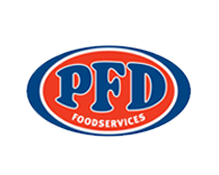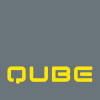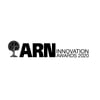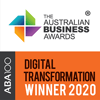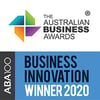Knowledge Representation
Knowledge Representation: Knowledge representation is the process of representing knowledge in a format that can be used by computers.
Knowledge Representation is a fundamental concept in the field of Computer Science. It involves representing knowledge and facts in symbolic form so that computers can process them efficiently. This article explores how Knowledge Representation works, its various forms, and why it matters for problem-solving and Artificial Intelligence (AI).
In order to use machines for problem-solving tasks such as decision-making or natural language processing, we must provide them with a way to represent information. By using formal languages and logical structures like ontologies, rules, frames, logic programs, etc., we are able to create models which capture our understanding of the world. With these powerful tools at hand, machine learning algorithms can be used to draw inferences from this structured data - thus forming the basis of AI applications.
Knowledge Representation has far-reaching implications; not only does it enable us to make better decisions faster but also helps reduce human errors that may arise due to a lack of expertise or mental fatigue. Thus it holds immense potential as an important tool in many areas including medical diagnosis, robotics, autonomous vehicles, financial services, and more. In this article, we will discuss what Knowledge Representation is and explore its different aspects in detail.
What Is Meant By Knowledge Representation?
Knowledge Representation (KR) refers to the process of representing knowledge in a structured and organised form. KR is an important tool for enabling computers to reason about knowledge, as it involves expressing information in semantic expression or formal representation. It includes methods for encoding facts, relationships between facts, and rules for making inferences from those facts and relationships.
Various approaches have been used to represent knowledge in different forms such as data structures, logic-based representations, frames, ontologies, etc. All these different methods are referred to as “representation formalisms” which provide syntactic means of representing knowledge that can be processed by machines. Some popular examples include predicate calculus, relational databases, object-oriented programming languages like Java, XML documents, and many more.
Data structure-based approach uses data elements called records or fields that contain specific pieces of information that together describe some aspect of reality. The logic-based approach consists of using logical statements expressed in formal language with clear semantics; this allows us to draw conclusions from premise statements through reasoning processes like deduction or induction. Frames use hierarchies of properties associated with objects; they allow us to store parts of world models related to individual objects in memory and then apply them when needed. Ontology languages are also able to represent complex concepts along with their relationships so that knowledge-base systems can interpret them accurately according to the given context. All these approaches enable efficient Knowledge Representation Reasoning (KRR), i.e., automatic processing of available information within the system's environment by taking advantage of its existing knowledge base and providing meaningful output results accordingly.
What Are The Three 3 Ways To Represent Knowledge?
Knowledge representation is an important area of research in knowledge engineering. It involves the introduction and organisation of information into a logical structure for use by computers, as well as humans. Knowledge representation can be divided into three categories: representation knowledge, reasoning knowledge, and form knowledge.
Representation knowledge refers to the ability of computer systems to understand data that has been inputted or stored on them. This requires an understanding of different types of data formats such as text, images, videos, etc., which are then converted into a format suitable for machine learning algorithms. Reasoning knowledge deals with how computers interact with given facts and rules to draw conclusions from these facts and rules. The most common method used here is first-order logic (FOL), which allows computers to represent relationships between entities using predicates and variables. Formal Knowledge focuses on representing large sets of complex problem domains using mathematical formalisms such as the Pico Framework or Expert Knowledge Representation Languages (EKRL). Additionally, it includes techniques like ontology-based approaches and semantic web technologies for creating structured representations for various datasets including natural language processing tasks like question-answering systems.
Common sense knowledge is another type of specialised representation that enables machines to better comprehend human interactions and everyday events by introducing context when extracting meaning from raw inputs. A more recent development in this field is the technology known as the 'knowledge graph', a directed graph consisting of nodes connected via edges representing all kinds of real-world objects and their relations within one single unified system. It provides an efficient way for machines to store complicated information about the world around us, enabling them to make decisions based on these connections faster than before.
Overall, there are many ways in which knowledge can be represented in order to enable machines or people alike to extract meaningful insights from vast amounts of data they encounter each day. Representations range from simple forms such as tabular databases up to more sophisticated ones like expert systems developed using Artificial Intelligence toolsets. All these models have proven instrumental in helping humans gain a better understanding of our physical environment while providing organisations with valuable decision-support capabilities at scale unprecedentedly fast rates
What Is Knowledge Representation And Why It Is Important?
Knowledge representation is the process of representing knowledge in a formal and structured way so that it can be used by computer systems. It is an essential part of many areas such as artificial intelligence, information systems, robotics and automation. Knowledge representation has been used to build rule-based expert systems for answering real world primary care clinical questions and other intelligent behaviour.
The goal of knowledge representation is to capture the expressive power of human knowledge within the limited capabilities of computer memory, processing speed and understanding. There are three main types of knowledge represented: declarative, procedural and meta-knowledge. Declarative knowledge represents facts while procedural knowledge represent how something should be done or followed; meta-knowledge captures relationships between different forms of knowledge like similarities or differences.
All these types of knowledge have their own purpose when representing a domain with computers. Declarative knowledge describes objects, concepts or events from the domain in detail which helps define its boundaries. Procedural tasks describe what needs to happen in order to achieve a certain result while meta-knowledge ties everything together by providing deeper insights into how each piece fits together e.g., similarity between two related items or difference between two unrelated ones. This allows us to create more complex models than just simple fact retrieval processes making them suitable for decision support applications in domains such as healthcare or finance where accuracy is critical but also time consuming if done manually.
By being able to represent multiple levels of abstraction efficiently, systems based on this technology can provide better solutions faster than humans could ever accomplish alone - simplifying complex problems into manageable chunks and allowing machines to work smarter rather than harder at understanding data sets too large for any human mind to comprehend without assistance from machine learning algorithms.
What Is Knowledge Representation In AI Examples?
Knowledge representation in AI examples is the process of representing knowledge and information to machines, enabling them to understand it. It can be thought of as translating human intelligence into a formal language that computers can comprehend. This allows for more efficient processing when dealing with large amounts of data or complex problems.
At its core, knowledge representation involves taking abstract ideas and making them concrete by using various methods such as heuristic knowledge, conceptual graphs, ontology for liquids, equivalence relations, pico representations, functional relationships and temporal concepts. By breaking down these ideas into smaller parts, it becomes easier for machines to interpret and use this information in their operations. Rules are then written in tables so that the machine knows how to respond appropriately given different scenarios.
The ultimate goal behind knowledge representation is to enable computer systems to reason about real-world events like humans do - efficiently interpreting data without having prior experience in order to make informed decisions. To achieve this level of artificial intelligence requires an understanding of natural languages, logical reasoning processes and semantic networks – all which require advanced algorithms designed specifically for each application domain. Through incorporating these elements into existing software frameworks, we have seen progress made towards developing smarter AI agents capable of tackling increasingly difficult tasks.
Conclusion
Knowledge Representation (KR) is a key concept in Artificial Intelligence. It refers to the way data and information are processed, organised, represented and stored for use by AI systems. KR enables machines to make decisions based on complex data sets. The three main ways of representing knowledge are symbolic representation, connectionist representation and hybrid representations.
Symbolic representation uses symbols or concepts to represent facts. Connectionist representation uses neural networks which enable computers to process input signals from different sources and produce output signals that can be used as decision support. Hybrid representations combine both methods of knowledge representation into one system.
KR is important because it helps us solve problems related to understanding language, recognising patterns and solving complex tasks such as robotics, vision processing and natural language processing. Without KR, it would be impossible for an AI system to function properly or make sound judgements when faced with various scenarios. KR therefore serves as a basis for developing intelligent systems that are capable of making informed decisions quickly and accurately.
PREVIOUS NARROW AI GLOSSARY TERM
NEXT NARROW AI GLOSSARY TERM
Knowledge Representation Definition
Exact match keyword: Knowledge Representation N-Gram Classification: Knowledge Representation and Reasoning, Knowledge Representation Language, Knowledge Based Systems Substring Matches: Knowledge, Representation Long-tail variations: "Knowledge Representation and Reasoning", "Knowledge Representation Languages", "Knowledge-Based Systems" Category: Artificial Intelligence, Computer Science Search Intent: Research, Solutions Keyword Associations: inference rules, natural language processing, decision trees Semantic Relevance: Inference Rules, Natural Language Processing, Decision Trees Parent Category: Computer Science Subcategories: Artificial Intelligence, Machine Learning Synonyms: Artificial Intelligence, Machine Learning Similar searches: Inference Rules, Natural Language Processing , Decision Trees Geographic Relevance: Global Audience Demographics: Students , Researchers , Professionals Brand Mentions : IBM , Microsoft , Google Industry-specific data : Neural networks , semantic web Commonly used modifiers : "Languages" ,"AI","Algorithms" Topically relevant entities : Inference Rules , Natural Language Processing , Decision Trees , Neural Networks , Semantic Web."Larry will be our digital expert that will enable our sales team and add that technological advantage that our competitors don't have."
Kerry Smith
CEO, PFD Foods
$1.6 billion in revenue 
"Lion is one of Australasia’s largest food and beverage companies, supplying various alcohol products to wholesalers and retailers, and running multiple and frequent trade promotions throughout the year. The creation of promotional plans is a complicated task that requires considerable expertise and effort, and is an area where improved decision-making has the potential to positively impact the sales growth of various Lion products and product categories. Given Complexica’s world-class prediction and optimisation capabilities, award-winning software applications, and significant customer base in the food and alcohol industry, we have selected Complexica as our vendor of choice for trade promotion optimisation."
Mark Powell
National Sales Director, Lion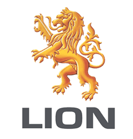
"At Liquor Barons we have an entrepreneurial mindset and are proud of being proactive rather than reactive in our approach to delivering the best possible customer service, which includes our premier liquor loyalty program and consumer-driven marketing. Given Complexica’s expertise in the Liquor industry, and significant customer base on both the retail and supplier side, we chose Complexica's Promotional Campaign Manager for digitalizing our spreadsheet-based approach for promotion planning, range management, and supplier portal access, which in turn will lift the sophistication of our key marketing processes."
Richard Verney
Marketing Manager
Liquor Barons

"Dulux is a leading marketer and manufacturer of some of Australia’s most recognised paint brands. The Dulux Retail sales team manage a diverse portfolio of products and the execution of our sales and marketing activity within both large, medium and small format home improvement retail stores. We consistently challenge ourselves to innovate and grow and to create greater value for our customers and the end consumer. Given the rise and application of Artificial Intelligence in recent times, we have partnered with Complexica to help us identify the right insight at the right time to improve our focus, decision making, execution, and value creation."
Jay Bedford
National Retail Sales Manager
Dulux

"Following a successful proof-of-concept earlier this year, we have selected Complexica as our vendor of choice for standardizing and optimising our promotional planning activities. Complexica’s Promotional Campaign Manager will provide us with a cloud-based platform for automating and optimising promotional planning for more than 2,700 stores, leading to improved decision-making, promotional effectiveness, and financial outcomes for our retail stores."
Rod Pritchard
Interim CEO, Metcash - Australian Liquor Marketers
$3.4 billion in revenue 
"After evaluating a number of software applications and vendors available on the market, we have decided to partner with Complexica for sales force optimisation and automation. We have found Complexica’s applications to be best suited for our extensive SKU range and large set of customers, being capable of generating recommendations and insights without burdening our sales staff with endless data analysis and interpretation.
Aemel Nordin
Managing Director, Polyaire
"DuluxGroup is pleased to expand its relationship with Complexica, a valued strategic partner and supplier to our business. Complexica’s software will enable DuluxGroup to reduce the amount of time required to generate usable insights, increase our campaign automation capability, personalise our communications based on core metrics, and close the loop on sales results to optimise ongoing digital marketing activity."
James Jones
Group Head of CRM, DuluxGroup
"Instead of hiring hundreds of data scientists to churn through endless sets of data to provide PFD with customer-specific insights and personalised recommendations, Larry, the Digital Analyst® will serve up the answers we need, when we need them, on a fully automated basis without the time and manual processes typically associated with complex analytical tasks.”
Richard Cohen
CIO, PFD Foods
$1.6 billion in revenue 
"As a global innovator in the wine industry, Pernod Ricard Winemakers is always seeking ways to gain efficiencies and best practices across our operational sites. Given the rise of Artificial Intelligence and big data analytics in recent times, we have engaged Complexica to explore how we can achieve a best-in-class wine supply chain using their cloud-based software applications. The engagement is focused on Australia & New Zealand, with a view to expand globally."
Brett McKinnon
Global Operations Director, Pernod Ricard Winemakers
"70% - 80% of what we do is about promotional activity, promotional pricing -- essentially what we take to the marketplace. This is one of the most comprehensive, most complex, one of the most difficult aspect of our business to get right. With Complexica, we will be best in class - there will not be anybody in the market that can perform this task more effectively or more efficiently than we can."
Doug Misener
CEO, Liquor Marketing Group
1,400+ retail stores 
"The key thing that makes such a difference in working with Complexica is their focus on delivering the business benefits and outcomes of the project."
Doug Misener
CEO, Liquor Marketing Group
1,400+ retail stores 
"Australia needs smart technology and people, and it has been a great experience for me to observe Complexica co-founders Zbigniew and Matt Michalewicz assemble great teams of people using their mathematical, logic, programming, and business skills to create world-beating products. They are leaders in taking our bright graduates and forging them into the businesses of the future."
Lewis Owens
Chairman of the Board, SA Water 
"Having known the team behind Complexica for some years ago now, I am struck by their ability to make the complex simple - to use data and all its possibilities for useful purpose. They bring real intelligence to AI and have an commercial approach to its application."
Andrew McEvoy
Managing Director, Fairfax Media - Digital 
"I have worked with the team at Complexica for a number of years and have found them professional, innovative and have appreciated their partnership approach to delivering solutions to complex problems."
Kelvin McGrath
CIO, Asciano 
“Working with Complexica to deliver Project Automate has been a true partnership from the initial stages of analysis of LMG’s existing processes and data handling, through scoping and development phase and onto delivery and process change adoption. The Complexica team have delivered considerable value at each stage and will continue to be a valued partner to LMG."
Gavin Saunders
CFO, Liquor Marketing Group 
“Complexica’s Order Management System and Larry, the Digital Analyst will provide more than 300 Bunzl account managers with real-time analytics and insights, to empower decision making and enhanced support. This will create more time for our teams to enable them to see more customers each day and provide the Bunzl personalised experience.”
Kim Hetherington
CEO, Bunzl Australasia 
"The team behind Complexica develops software products that are at the cutting edge of science and technology, always focused on the opportunities to deliver a decisive competitive edge to business. It has always been a great experience collaborating with Matthew, Zbigniew and Co."
Mike Lomman
GM Demand Chain, Roy Hill Iron Ore 
"The innovations that the Complexica team are capable of continue to amaze me. They look at problems from the client side and use a unique approach to collaborating with and deeply understanding their customers challenges. This uniquely differentiates what they bring to market and how they deliver value to customers."
John Ansley
CIO, Toll Group 
"Rather than building out an internal analytics team to investigate and analyse countless data sets, we have partnered with Complexica to provide our sales reps with the answers they need, when they need them, on a fully automated basis. We are excited about the benefits that Larry, the Digital Analyst will deliver to our business.”
Peter Caughey
CEO, Coventry Group 
“Complexica’s Order Management System and Larry, the Digital Analyst will provide more than 300 Bunzl account managers with real-time analytics and insights, to empower decision making and enhanced support. This will create more time for our teams to enable them to see more customers each day and provide the Bunzl personalised experience.”
Kim Hetherington
CEO, Bunzl Australasia 
"After an evaluation process and successful proof-of-concept in 2016, we have chosen to partner with Complexica to upgrade the technological capability of our in-field sales force. The next-generation Customer Opportunity Profiler provided by Complexica will serve as a key tool for sales staff to optimise their daily activities, personalise conversations and interactions with customers, and analyse data to generate actionable insights."
Stephen Mooney
Group Sales Capability Manager, DuluxGroup
$1.7 billion in revenue
"After evaluating a number of software systems available in the marketplace, we have ultimately selected Complexica as our vendor of choice for sales force automation and CRM. Given the large SKU range we carry and very long tail of customers we serve, Complexica’s applications are best suited to deal with this inherent complexity without burdening our staff with endless data entry."
Nick Carr
CEO, Haircaire Australia
Australia's largest distributor of haircare products
“Asahi Beverages is Australia’s largest brewer, supplying a leading portfolio to wholesalers and retailers, including some of Australia’s most iconic brands. Last year Asahi Beverages acquired Carlton & United Breweries, which is its Australian alcohol business division. To harness the strength of our expanded portfolio, we partner with our customers to run multiple and frequent trade promotions throughout the year, delivering long-term growth for both our business and theirs. Given the inherent complexity in optimising promotional plans and our continued focus on revenue and growth management, we have selected Complexica as our vendor of choice after a successful Proof-of-Concept of its world-class optimisation capabilities.”
Kellie Barnes
Group Chief Information Officer
Asahi Beverages
"Dulux is a leading marketer and manufacturer of some of Australia’s most recognised paint brands. The Dulux Retail sales team manage a diverse portfolio of products and the execution of our sales and marketing activity within both large, medium and small format home improvement retail stores. We consistently challenge ourselves to innovate and grow and to create greater value for our customers and the end consumer. Given the rise and application of Artificial Intelligence in recent times, we have partnered with Complexica to help us identify the right insight at the right time to improve our focus, decision making, execution, and value creation."
Jay Bedford
National Retail Sales Manager, DuluxGroup
"At Liquor Barons we have an entrepreneurial mindset and are proud of being proactive rather than reactive in our approach to delivering the best possible customer service, which includes our premier liquor loyalty program and consumer-driven marketing. Given Complexica’s expertise in the Liquor industry, and significant customer base on both the retail and supplier side, we chose Complexica's Promotional Campaign Manager for digitalizing our spreadsheet-based approach for promotion planning, range management, and supplier portal access, which in turn will lift the sophistication of our key marketing processes."
Richard Verney
Marketing Manager, Liquor Barons








